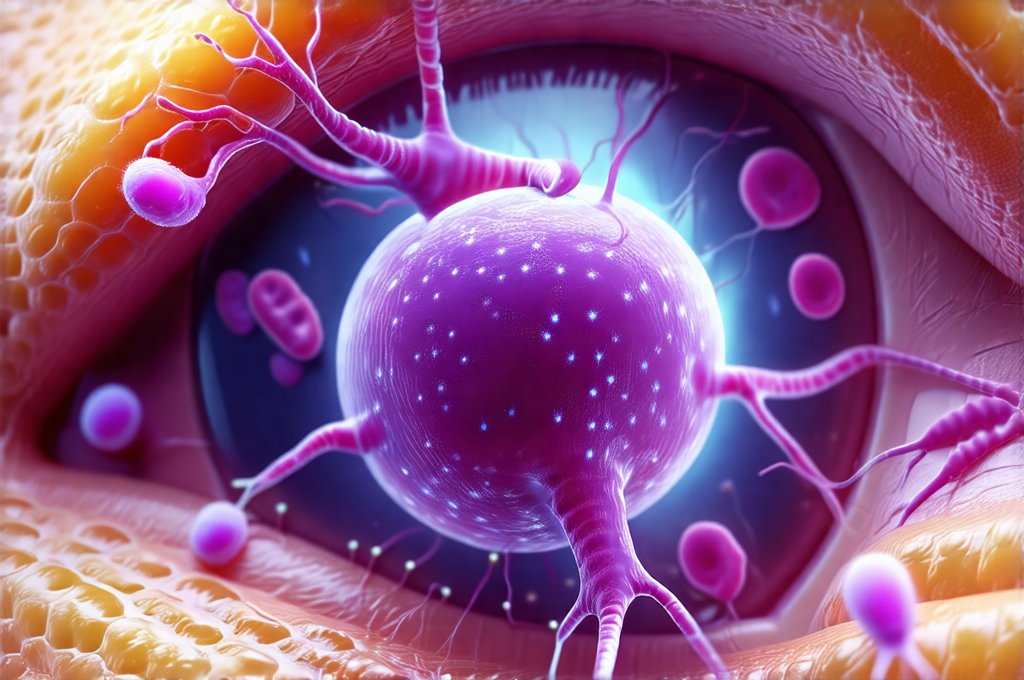Sleep, a fundamental physiological process, is far more intricate than simply ‘switching off’ for a period of rest. It’s a dynamic state governed by complex interactions between our nervous system, hormones, and surprisingly, the vast community of microorganisms residing within us – collectively known as the microbiota. For decades, sleep research focused largely on brain activity and neurochemical pathways. However, recent advancements in microbiome science are revealing an astonishing bidirectional relationship between gut bacteria and sleep quality. This emerging field suggests that imbalances in our microbial ecosystems can contribute to sleep disturbances like insomnia, while conversely, good sleep habits can positively influence the composition and function of our microbiota. Understanding this interplay is crucial for developing more holistic approaches to sleep health.
The human body doesn’t exist in isolation; it’s an ecosystem teeming with trillions of bacteria, fungi, viruses, and other microbes. These microorganisms aren’t just passive bystanders but actively participate in numerous physiological processes, including digestion, immunity, and even neurological function. The gut-brain axis – a complex communication network linking the gastrointestinal tract to the brain – is central to this relationship. This axis operates through several pathways: the vagus nerve (a direct neural connection), the immune system, endocrine signaling (hormone production), and importantly, microbial metabolites – substances produced by bacteria during digestion that can impact brain function. It’s becoming increasingly clear that a healthy gut microbiome is essential not just for digestive health but also for optimal brain function and restorative sleep.
The Gut-Brain Axis & Sleep Regulation
The gut-brain axis isn’t a one-way street; it’s a dynamic, bidirectional communication system. What happens in the gut profoundly impacts the brain, and conversely, our mental state – including stress and anxiety – can significantly affect the gut microbiome. This interplay is particularly relevant to sleep because many neurotransmitters involved in sleep regulation are also influenced by gut bacteria. For example:
- Serotonin, often dubbed the “happiness hormone,” plays a crucial role in mood regulation and sleep initiation. Approximately 90% of serotonin is produced in the gut, and its production is heavily influenced by microbial activity.
- GABA (gamma-aminobutyric acid) is an inhibitory neurotransmitter that promotes relaxation and reduces anxiety, contributing to better sleep. Certain bacterial strains can directly produce GABA.
- Melatonin, the “sleep hormone,” regulates the sleep-wake cycle. While primarily produced in the pineal gland, gut bacteria can influence melatonin production by modulating tryptophan metabolism – a precursor to melatonin.
Disruptions in the gut microbiome (dysbiosis) can therefore lead to imbalances in these neurotransmitters, potentially contributing to sleep disturbances. A less diverse microbiome is often associated with reduced serotonin and GABA levels, increased inflammation, and heightened stress reactivity—all factors that can disrupt sleep architecture and contribute to insomnia. Moreover, microbial metabolites like short-chain fatty acids (SCFAs), produced during the fermentation of dietary fiber, have been shown to influence brain function and sleep quality through their anti-inflammatory properties and modulation of the hypothalamic-pituitary-adrenal (HPA) axis – the body’s primary stress response system.
The impact extends beyond neurotransmitters. The immune system, intimately linked with the gut microbiome, also plays a critical role in sleep regulation. Chronic inflammation, often stemming from an imbalanced gut, can disrupt sleep and exacerbate insomnia symptoms. In essence, a healthy gut microbiome supports a balanced immune response, reducing systemic inflammation and promoting restorative sleep. This demonstrates that focusing solely on behavioral interventions for insomnia may not be enough; addressing the underlying microbial imbalances could provide a more comprehensive solution. Understanding gut inflammation is key to overall health, and sleep quality.
Insomnia & Microbiome Imbalances
Insomnia isn’t simply about difficulty falling asleep. It’s a multifaceted condition characterized by difficulties initiating or maintaining sleep, or experiencing non-restorative sleep, despite adequate opportunity for sleep. While stress, anxiety, and poor sleep habits are well-recognized contributors, emerging research suggests that gut microbiome imbalances may play a significant role in the development and perpetuation of insomnia. Studies have consistently shown differences in the gut microbial composition between individuals with chronic insomnia and healthy sleepers.
Specifically, people struggling with insomnia often exhibit:
- Reduced microbial diversity – meaning fewer different species of bacteria are present.
- Lower abundance of beneficial bacteria like Bifidobacterium and Lactobacillus, known for their anti-inflammatory properties and role in neurotransmitter production.
- Higher abundance of potentially harmful bacteria, which can contribute to inflammation and gut permeability (“leaky gut”).
This dysbiosis can lead to increased intestinal permeability, allowing inflammatory molecules to enter the bloodstream and trigger systemic inflammation. As mentioned earlier, chronic inflammation is a major disruptor of sleep. Furthermore, altered microbial metabolism can affect hormone regulation and neurotransmitter levels, further exacerbating insomnia symptoms. It’s important to note that these imbalances aren’t necessarily the cause of insomnia in every case; rather, they are often intertwined with other factors like stress, diet, and lifestyle.
However, this growing body of evidence suggests that targeting the gut microbiome could be a promising adjunct therapy for insomnia. Interventions aimed at restoring microbial balance—such as dietary changes, probiotic supplementation (with caution – see below), and prebiotics—may help alleviate some of the underlying factors contributing to sleep disturbances and improve sleep quality. The role of fasting can also play a role in balancing gut health.
Dietary Strategies for Sleep & Microbiome Health
Diet plays a pivotal role in shaping the gut microbiome and influencing sleep. A diet rich in processed foods, sugar, and unhealthy fats can promote dysbiosis and inflammation, while a whole-food diet focused on plant-based sources can foster microbial diversity and support healthy sleep. Here are some key dietary strategies:
- Increase Fiber Intake: Dietary fiber is the primary food source for beneficial gut bacteria. Aim for 25-35 grams of fiber per day from sources like fruits, vegetables, whole grains, and legumes. This promotes SCFA production, reducing inflammation and supporting neurotransmitter synthesis.
- Limit Processed Foods & Sugar: These foods feed harmful bacteria and contribute to inflammation, disrupting the microbiome and negatively impacting sleep. Reducing sugar intake is particularly important as it can interfere with serotonin production.
- Incorporate Fermented Foods: Foods like yogurt (with live cultures), kefir, sauerkraut, kimchi, and kombucha are naturally rich in probiotics – beneficial bacteria that can help restore microbial balance. However, individual responses to fermented foods can vary, so start slowly and monitor for any digestive discomfort.
It’s also important to consider timing. Eating a large meal close to bedtime can disrupt sleep as the body focuses on digestion. Opting for a lighter evening meal and avoiding caffeine and alcohol before bed are also crucial steps. This isn’t about strict dieting; it’s about making mindful food choices that support both gut health and sleep quality. Understanding bile’s role in digestion can also help inform dietary choices.
Probiotics & Prebiotics: A Cautious Approach
Probiotic supplementation—introducing live microorganisms to the gut—has gained significant popularity for improving digestive and overall health, but its role in treating insomnia is still evolving. While some studies suggest that specific probiotic strains can improve sleep parameters like sleep latency (time to fall asleep) and sleep duration, results are often mixed and strain-specific.
- Strain Specificity: Not all probiotics are created equal. Different bacterial strains have different effects on the body. Lactobacillus rhamnosus GG and Bifidobacterium longum 1714 have shown some promise in reducing anxiety and improving sleep, but more research is needed to determine optimal strains for insomnia.
- Individual Variability: The gut microbiome is highly individualised. What works for one person may not work for another. Factors like diet, genetics, and existing microbial composition influence how someone responds to probiotic supplementation.
- Potential Side Effects: Some individuals may experience digestive upset (bloating, gas) when starting probiotics.
Prebiotics—non-digestible fibers that feed beneficial bacteria in the gut—can be a complementary approach. They promote the growth of existing good bacteria and support microbial diversity. Sources include onions, garlic, asparagus, bananas, and oats. However, it’s essential to introduce prebiotics gradually to avoid digestive discomfort.
It’s crucial to consult with a healthcare professional before starting any probiotic or prebiotic regimen. Self-treating can sometimes do more harm than good. A qualified practitioner can help determine the appropriate strains and dosage based on individual needs and health status. The pancreas role is also important when considering overall metabolic health and dietary choices.
The Future of Sleep & Microbiome Research
The field of microbiome research is rapidly evolving, and our understanding of the gut-brain axis and its impact on sleep is still in its early stages. Future research will likely focus on:
- Personalized Microbiome Interventions: Developing tailored dietary and probiotic strategies based on an individual’s unique microbial profile.
- Identifying Key Microbial Metabolites: Investigating how specific metabolites produced by gut bacteria influence sleep regulation and identifying ways to enhance their production through diet or supplementation.
- Longitudinal Studies: Conducting long-term studies to assess the impact of microbiome interventions on chronic insomnia and overall sleep health.
- Exploring Fecal Microbiota Transplantation (FMT): While still experimental, FMT—transferring fecal matter from a healthy donor to restore microbial balance—may hold potential for treating severe cases of dysbiosis contributing to insomnia.
Ultimately, recognizing the crucial role of the gut microbiome in regulating sleep-wake cycles and addressing underlying microbial imbalances offers a promising new avenue for improving sleep health and tackling the growing global problem of insomnia. It’s a shift from solely focusing on symptom management to addressing the root causes—a more holistic and potentially transformative approach to restorative sleep. Understanding fodmaps role can also help manage digestive discomfort which impacts sleep. Finally, understanding the gastrin hormone and its role in digestion will enhance your knowledge of overall gut health.


















